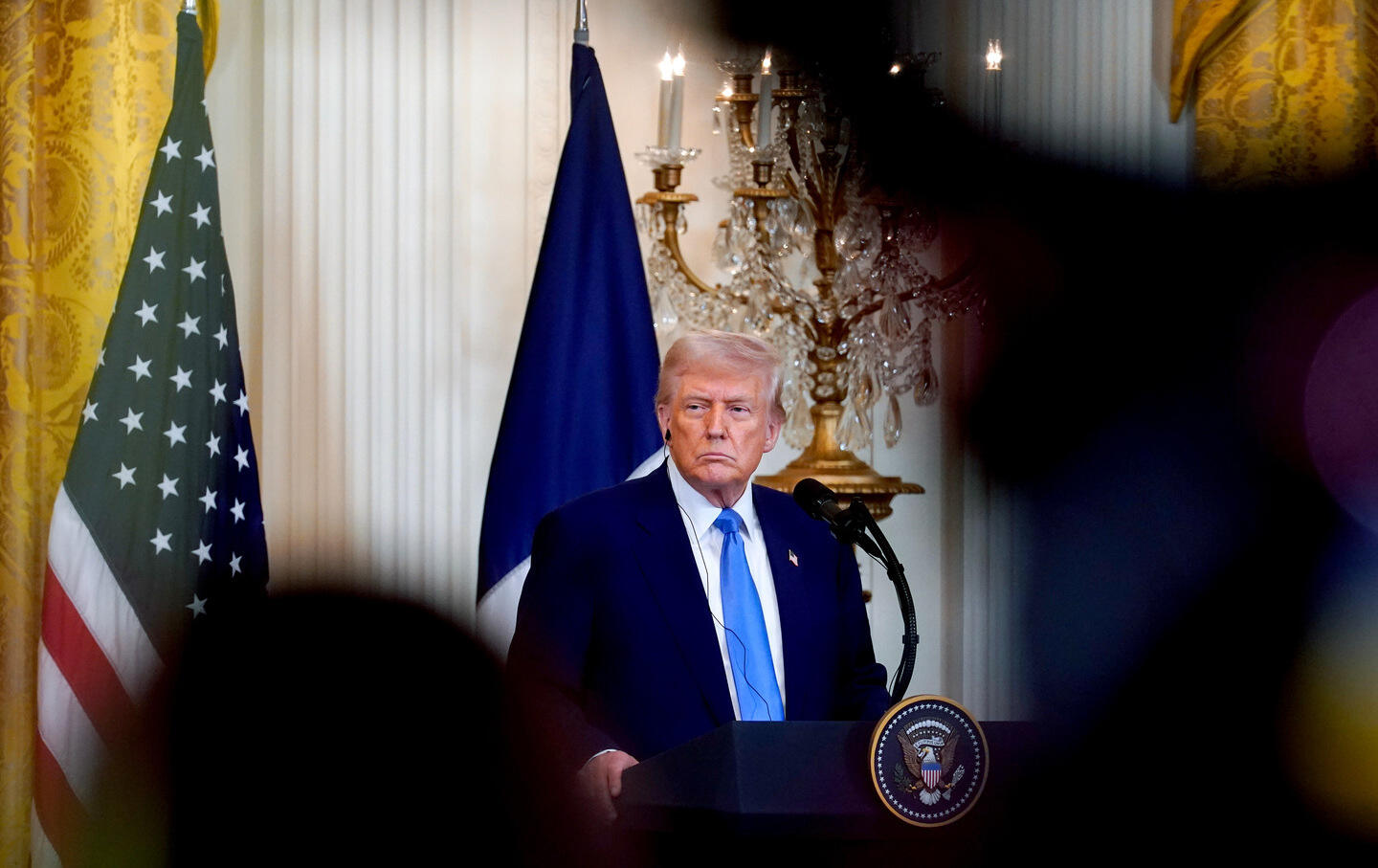Trump Upturns American Foreign Policy
On this episode of The Time of Monsters, Stephen Wertheim on how America First went from rhetoric to policy.

Here's where to find podcasts from The Nation. Political talk without the boring parts, featuring the writers, activists and artists who shape the news, from a progressive perspective.
On this episode of the Time of Monsters, Jeet Heer is joined by Stephen Wertheim to discuss how 'America First' went from rhetoric to policy.
—
During his first term in office, Donald Trump often talked about his radical America First agenda but in practice his foreign policy was that of a conventional Republican hawk. Just five weeks into his second term, there has been a marked shift. As Stephen Wertheim, a senior fellow at the Carnegie Endowment for International Peace, recently noted in The Guardian, Trump 2.0 is marked by a turn toward a foreign policy that is much more focused on the Western Hemisphere and away from Europe and more geared toward tariffs as a weapon of economic warfare. In other words, Trump has now found advisers who are willing to implement the core strategy of America First in a real way.
This shift has frightened many American allies, particularly the NATO countries and Mexico. Yet mixed with Trump’s advocacy of a new Manifest Destiny have been welcome indications that his administration will be more open to negotiating with Russia, Iran and perhaps even China.
To make sense Trump’s conflicting foreign policy messages and actions, I was happy to talk to Stephen Wertheim, who shares my belief that we need to distinguish between Trump’s rhetoric and his actions.
Advertising Inquiries: https://redcircle.com/brands
Privacy & Opt-Out: https://redcircle.com/privacy

Donald Trump during a news conference with Emmanuel Macron, France’s president, not pictured, in the East Room of the White House in Washington, DC, on Monday, February 24.
(Al Drago / Bloomberg via Getty Images)During his first term in office, Donald Trump often talked about his radical America First agenda, but in practice his foreign policy was that of a conventional Republican hawk. Just five weeks into his second term, there has been a marked shift. As Stephen Wertheim, a senior fellow at the Carnegie Endowment for International Peace, recently noted in The Guardian, Trump 2.0 is marked by a turn toward a foreign policy that is much more focused on the Western Hemisphere and away from Europe and more geared toward tariffs as a weapon of economic warfare. In other words, Trump has now found advisers who are willing to implement the core strategy of America First in a real way.
This shift has frightened many American allies, particularly the NATO countries and Mexico. Yet mixed with Trump’s advocacy of a new Manifest Destiny have been welcome indications that his administration will be more open to negotiating with Russia, Iran and perhaps even China.
To make sense Trump’s conflicting foreign policy messages and actions, I was happy to talk to Stephen Wertheim, who shares my belief that we need to distinguish between Trump’s rhetoric and his actions.
Subscribe to The Nation to support all of our podcasts: thenation.com/podcastsubscribe.

Here's where to find podcasts from The Nation. Political talk without the boring parts, featuring the writers, activists and artists who shape the news, from a progressive perspective.
By helping the Republicans pass a spending bill that made no compromises with the Democrats and extend Donald Trump’s power over the government, Chuck Schumer has made himself widely unpopular in his own party. Anger at Schumer is so intense that he had to cancel parts of his tour to promote his new book Antisemitism in America: A Warning. David Klion, Nation columnist and frequent guest on the podcast, reviewed this volume for The Baffler. He joins to podcast to discuss both the book and the making of Chuck Schumer.
Advertising Inquiries: https://redcircle.com/brands
Privacy & Opt-Out: https://redcircle.com/privacy
